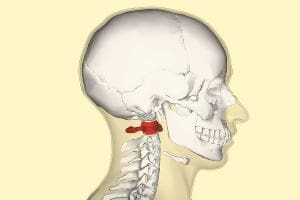statFor some women, it's about making an elegantement at special events or being a couple…

A Brief Patient’s Guide to Atlas Orthogonal Technique
 The Atlas Orthogonal Technique is a highly-specialized form of chiropractic treatment focused on restoring body balance through upper cervical spinal corrections. In particular, the manipulations concentrate on the first bone in the neck, which is also known as the atlas vertebra. Misalignment of this vertebra can lead to both physical and mental stress throughout the body.
The Atlas Orthogonal Technique is a highly-specialized form of chiropractic treatment focused on restoring body balance through upper cervical spinal corrections. In particular, the manipulations concentrate on the first bone in the neck, which is also known as the atlas vertebra. Misalignment of this vertebra can lead to both physical and mental stress throughout the body.
What is the objective of the Atlas Orthogonal Technique?
In the simplest terms, the goal of the procedure is to gently move the atlas vertebra into a better position relative to the spine below and skull above. The Atlas Orthogonal adjustment is designed to restore balance and proper communication between your brain and your body. When nerve impulses between the two are restricted, pain, tension and a variety of other health conditions—sometimes chronic—can result. By re-aligning this critical bone, the Atlas Orthogonist can relieve nerve compression and promote healing.
What makes this technique different from other chiropractic adjustments?
One of the main differences is that patients experience very little sensation during an Atlas Orthogonal adjustment. The chiropractor uses a special x-ray device to pinpoint the exact location of the atlas vertebra and to determine how far it has shifted from its normal position. Then, the device applies a brief sound vibration directly to the neck that gently moves the atlas vertebra into a better position relative to the skull and spine. Unlike other types of chiropractic manipulation that involve larger amounts of directed force and sometimes produce a popping sound (referred to as “cavitation”), this technique requires only minute adjustments of the atlas bone in order to initiate healing and pain relief.
What can I expect from my first atlas correction?
Your chiropractor will determine the treatment you need after a comprehensive evaluation of your symptoms, prior medical history, and x-rays. The degree of misalignment, along with the nature and severity of your symptoms, will determine how quickly you experience relief. You may also notice some tiredness or muscle stiffness, and in some cases pain symptoms may migrate to another area of the body. For most people, one or two Atlas Orthogonal adjustments are all they need to start noticing improvements.
Can all chiropractors provide Atlas Orthogonal adjustments?
No. An Atlas Orthogonist is a doctor of chiropractic who has completed additional specialized training focused on spinal manipulations of the upper spine and neck, using the Atlas Orthogonal percussion instrument. The Atlas Orthoganist is an expert in light touches rather than forceful manipulation, although he or she may offer several types of adjustments to their patients. Your Atlas Orthoganist will also have extensive training in the proper use of advanced imaging techniques. X-rays play a particularly important role in atlas correction, since precise measurements are required for diagnostic purposes and to deliver the treatment as well as to evaluate its progress in restoring proper alignment.
If you’re interested in learning more about how Atlas Orthogonal adjusting works, please call or visit our office today.




